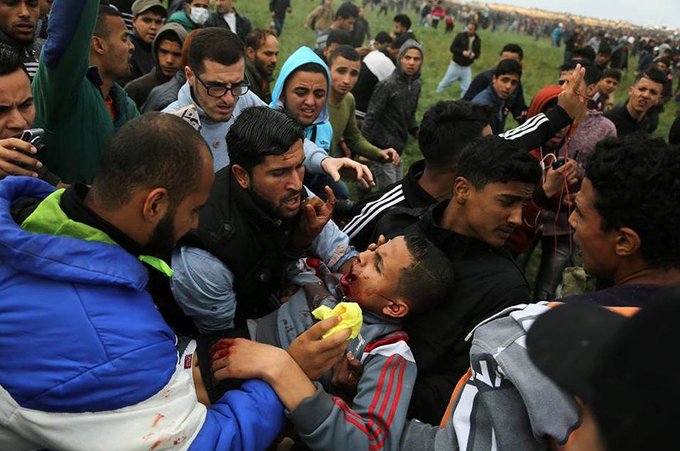The ministry's Facebook and Twitter pages were brimming with comments from residents of Saudi Arabia, Iraq, Jordan and other Arab countries, who backed Israel's side of the conflict and lambasted Hamas for its exploitation of the inhabitants of Gaza, who they rule.
This is the land (of Israel), and who are you?" wrote one commentator addressing the Great March of Return protesters, questioning their right of return to territories that are now Israel. "My heart is with my Jewish cousins. There is no escaping the fact that Hamas' Palestinian terrorism will inevitably end," he added.
"We hope that our Palestinian brothers will not be dragged by Hamas' terror plots, which will only harm the Palestinians," Ahmad from Basra in Iraq wrote. "We must act for peace between the State of Israel and the Palestinians."
A picture of a Palestinian baby photographed alongside tires intended to be torched in the "Friday of Tires" riots sparked great uproar among commentators.
"Gazan children need clean air, not air that has been contaminated with the burning of tires of hatred," a Jordanian citizen wrote, chiding Hamas over their initiative. He added that Gaza needs fresh leadership that can move it forward "from the age of conflict and hunger to the light of humanity, knowledge and love."
He then claimed that the leaders of Hamas were drawing their ideas from Hitler and Iran. "The time has come to throw them into the dustbin of history, along with their hate tires," he concluded.
"Mercy and humanity have faded from your hearts, Hamas leaders," wrote Omar. Another referenced the picture of the baby, writing, "Your tiny body will be used by them (Hamas). They will trade in your blood, my children; they will trade in your pure soul. My dear Palestinians—they will trade in your story."
.jpg)


























